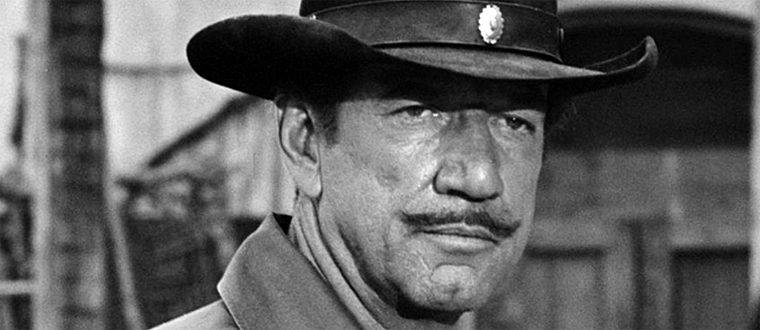
I managed to catch a nasty chest cold circulating around town, found myself low on energy and sitting around for most of a week in no mood to work or even read, so I browsed Netflix and nostalgically began watching the first season of the Paladin saga, Have Gun – Will Travel.
Have Gun – Will Travel was a hit TV show that began in 1957 when I was nine years old. Richard Boone played Paladin, a circa 1879 world-wise professional gunman of unusual talents; a lover of books, poetry and opera, good food, beautiful women, and poker. He also was scrupulously honest in his enforcement of ethical behavior in the old west.
Though he charged $1,000 per job and thoroughly enjoyed spending his money, Paladin often put money aside in favor of doing the right thing. In 1957, the right thing was changing, and though the series was set around 1879, it was the emerging social ethic of the late 1950’s and early 60’s that was the theme of Have Gun – Will Travel. Be it equal rights for women, the end of segregation, standing up for the underdog or defending the handicapped, the highly educated Paladin advocated the agenda of 1957 urban America. Running for six years, the show overlapped the election of John Kennedy, the civil rights movement, and the beginnings of women’s lib. Tellingly, its writers included Gene Roddenberry, creator of Star Trek, who in 1966 envisioned a multicultural, multiracial and more gender-equal future society.
We 50’s kids watched Paladin civilizing America, and the show reinforced values that found fuller expression as we became teens and young adults. Have Gun – Will Travel was not alone in such influence, but as an honorable Old West “samurai” warrior in dressed in black, Richard Boone’s stolid yet sensitive nature (he’d quote Shelly, Byron, Homer and Socrates) also presaged the possibility of a new American man unfettered by conformity and prejudice. He smoothly moved between the cosmopolitan elegance of San Francisco’s Hotel Carlton and the rugged, dusty hills of the west; Paladin represented the burgeoning urbane ideals of higher education, true equality before the law, and justice for all. Though he sometimes used a gun, he preferred reason as a weapon against intolerance and bigotry.
In contrast to mass media’s relativistic morality of the latter 20th century, early 1960’s TV focused public attention on weighty issues of social equity. It’s important to recall that in 1960 three television networks basically comprised the totality of TV entertainment. As such, it played a formative role in the anti-discrimination and anti-war movements of the period. In westerns, villain and hero were easily distinguished from each other, and it was not until the latter 60’s the line between them began to blur. Despite his black gunslinger’s outfit, Paladin was a hero – a complex one to be sure – but plainly a hero nonetheless. Quoting Socrates, he might say, “It is not living that matters, but living rightly.”
Ironically, the tension between Paladin’s urbanity and the Wild West continues today. I see it in attacks on the “elites,” the “liberal” media and educators by politicians advocating the wisdom of “real” Americans and “rugged individualism.” The proliferation of the web and 300-channel TV has eliminated the common “hearth” of story-telling; today’s children, unfortunately, have been set adrift without any moral rudder.